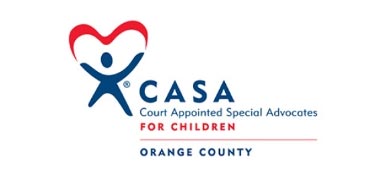
Recently, one sister, Christine, appealed a judgment in favor of her sister Allison following a trial on Christine’s petition seeking to confirm the will and trust of their father Adolf, as well as Christine’s status as its sole trustee, and Allison’s cross-petition to declare void or voidable the will and trust because the documents were procured by Christine’s undue influence.
Adolf immigrated to the U.S. from Yugoslavia as a child. He completed school to the eighth grade, and his native language was German. He wasn’t computer literate, and he could read and write with some difficulty. After a mild heart attack, Adolf became concerned about his estate. He told Allison at that time that he wanted to make sure she knew what he had and that everything was to be divided equally between the two daughters, Allison and Christine.
A short time later Adolf was diagnosed with stage IV lung cancer.
Christine and Adolf came across Adolf’s handwritten will while they were going through Adolf’s papers. She said the paper was prepared when Christine was around 10 years old and written by Adolf and the girls indicating that he wanted his daughters to split things equally. Soon thereafter, Christine held a meeting at her house between Adolf and an attorney. Adolf was still on pain medication, but the attorney didn’t ask him about whether he was taking any medication at the time. Christine completed the estate planning questionnaire for her father. The attorney knew that Adolf had only an eighth-grade education but didn’t discuss Adolf’s ability to read. During the meeting, the attorney noted that Adolf wanted a 10-year restriction on the ability to sell or borrow on his house to keep the funds available to his grandsons without being encumbered by loans. Adolf also said that he had two safes and wanted each of the daughters to receive the contents of one.
The attorney never directly spoke with Adolf again after their meeting. The attorney assigned an associate to prepare his estate planning documents, and she forwarded them to Christine, not Adolf. The associate didn’t communicate with Adolf about what he wanted or get his feedback on her drafts, as the attorney told her to communicate only via e-mail with Christine. Indeed, the associate referred to Christine as the “client.” The draft of the trust gifted his house to Christine and her sons, and required the trustee to divide Adolf’s remaining trust estate into “shares of equal market value” to distribute to Allison and Christine. After reviewing the draft, Christine told the associate to make several changes to the estate plan—including giving Allison only one-third of a $110,000 cash gift and to omit mention of the cement floor safe. Christine didn’t give a copy of her instructions to Adolf. The associate made these changes and sent the documents back to Christine, who made more changes. The associate later met with Adolf to review the substantive provisions of the documents, but not the specific changes that Christine made to the trust.
At the attorney’s request, she prepared a certificate of review in which she verified that she spent time with Adolf and the documents were “what he wanted.” After signing, Christine and Adolf themselves insisted on taking the funding documents to the bank directly, which the attorney said was “highly unusual,” and not his usual practice.
Allison didn’t learn that her father had terminal cancer until after he’d signed the estate planning documents. Adolf told a friend that he’d done something he said he wasn’t going to do, which was to leave Christine his house. He was visibly unhappy about it. Sometime later, Adolf told Allison he was leaving his house to Christine. Allison was shocked and reminded him that for years he’d always said everything would be divided equally. Adolf told Allison that Christine said if he left the house to both, there’d be fighting, which he didn’t want.
Days after Adolf’s death, Allison brought a will and trust contest in LA Superior Court and soon thereafter, Christine filed a petition under Probate Code § 850 in Orange County. She sought to confirm the validity of Adolf’s trust and herself as its sole trustee. Christine filed a declaration in the court proceedings that misrepresented facts concerning the transfer of the accounts into the trust, and the attorney asked her to amend it to reflect the true circumstances.
Allison objected to Christine’s petition and asked the trial court to declare Adolf’s trust void or voidable as procured by undue influence or due to Adolf’s lack of capacity, as well as a judgment quieting title to Adolf’s personal residence to recover it for the benefit of Adolf’s intestate estate.
The matter proceeded to a bench trial, and Allison and Christine submitted a joint statement that asked the court to decide whether Christine proved “by clear and convincing evidence that the Trust and Will were not the result of her exerting undue influence on [Adolf]” and make findings about the state of Adolf’s condition and understanding of his testamentary act the day he signed the estate documents. The trial court ruled for Allison. The trial court included legal analysis and detailed factual findings concerning the presumption of undue influence, recounting Allison’s evidence on the relevant standards including as to how Christine unduly benefited under Adolf’s trust and will, why Allison’s evidence shifted the burden of proof to Christine, and whether Christine’s evidence rebutted the presumption. The court expressly found Christine’s testimony on the issue of undue influence “not credible.”
Finding for Allison, the court declared Adolf’s purported trust and will void and ordered his estate to pass to his heirs by the California law of intestate succession. It also ordered title to Adolf’s residence quieted into his name and the home administered by the intestate estate. The trial court denied Christine’s Probate Code § 850 petition in its entirety, and Christine appealed.
Associate Judge Terry B. O’Rourke of the California Court of Appeals wrote in his opinion for the panel that state law allows a testator to dispose of property as he or she sees fit without regard to whether the dispositions specified are appropriate or fair, and that testamentary competence is presumed. However, the presumption can be overcome if it’s shown that the testator was affected by undue influence, which is “pressure brought to bear directly on the testamentary act, sufficient to overcome the testator’s free will, amounting in effect to coercion destroying the testator’s free agency.”
The judge explained that direct evidence of undue influence is rare; thus, courts must typically determine its existence by inference from the totality of facts and circumstances. The person contesting a trust bears the burden of proving undue influence, however, “‘under certain narrow circumstances, a presumption of undue influence may arise, shifting to the proponent of the disposition the burden of proving by a preponderance of the evidence that the donative instrument was not procured by undue influence.” The presumption of undue influence arises if the challenger shows “that (1) the person alleged to have exerted undue influence had a confidential relationship with the testator; (2) the person actively participated in procuring the instrument’s preparation or execution; and (3) the person would benefit unduly by the testamentary instrument.” Here, the trial court found that Christine had a confidential relationship with Adolf and was actively involved in procuring his trust. The court further found that before the Trust was created, Adolf had a handwritten Will that had existed for 30 years that said his daughters were to divide his estate equally. That Will was consistent with what Allison had always been told by her father before the execution of the more recent Trust and Will.
Christine claimed that the trial court’s finding she unduly profited from the will and trust lacked substantial evidence, and that it erred by shifting the burden to her to prove the absence of undue influence. But Judge O’Rourke found nothing in the trial court’s ruling indicating that it engaged in a limited analysis on the question of Christine’s undue benefit. Rather, accepting the evidence in Allison’s favor compelled the Court of Appeals to uphold the trial court’s finding of undue benefit. The evidence showed that for years Adolf expressed his intent to divide his estate equally between the two daughters, and had what he considered to be a will that would accomplish this. The judge found that the evidence showed Adolf destroyed that will when he and Christine came upon it after learning of his cancer diagnosis, and he changed his will and trust with Christine’s assistance, participation, and control to give her a substantially larger share of his assets, including his home. The new estate plan was initially discussed with the attorney when Adolf was on pain medication, and Christine later told the associate to make changes to the trust—including the disposition of the remaining trust estate from equal shares. When he signed the documents, the associate just generally confirmed with Adolf that they were what he wanted but didn’t review the specific changes. And afterwards, Adolf expressed regret at what he had done.
The Court said that evidence that Christine actively helped to procure and directed changes to Adolf’s trust documents—which favored her significantly over her sister—was properly considered to find undue benefit. Plus, evidence by itself that Adolf for a long period expressed intent to treat his daughters equally in his will, but then was assisted by Christine in preparing a will and trust that left substantially more to Christine contrary to that prior intent, constituted substantial evidence supporting a finding that she unduly benefitted for purposes of meeting the presumption of undue influence.
The Court of Appeals found that because Allison presented sufficient evidence of Christine’s undue benefit, the burden shifted to Christine to rebut the presumption. But Christine didn’t rebut the presumption of undue influence, and the Court of Appeals held that the evidence supported the trial court’s finding that Christine failed to prove Adolf comprehended the details of his estate planning. As a result, the judgment for Allison was affirmed. Masters v. Ries, 2017 Cal. App. Unpub. LEXIS 2042 (Cal. Ct. App. 4th Dist. March 22, 2017)
Family members and friends can manipulate vulnerable seniors and exert undue influence, which can interfere with his or her natural inclination to provide for family members…instead persuade them into leaving assets to the manipulator. The family sometimes doesn’t discover this until after the person has died, as the influencer will try to keep any last-minute changes to trusts and will from detection. Relatives who suspect that the deceased was taken advantage of—and didn’t just change his or her mind—should contact an experienced trust attorney. If successful in proving undue influence, the probate judge can rule the will or trust is invalid.
If you have questions about trusts and undue influence, contact NM Law, APC (949-253-0000) to speak to a trust administration attorney. We encourage you to take advantage of our superior skill and knowledge and to speak with us today to get answers to your questions about trusts.
Disclaimer: This article is intended to provide a general summary of laws in the State of California and should not be construed as a legal opinion nor a complete legal analysis of the subject matter. Noelle Minto is an attorney at NM Law, APC in Tustin, California, a law firm specializing in Trusts & Estates and Business Transactions.
Testimonials
Charities We Support
We dedicate pro bono time, volunteer services, and a percentage of our gross revenue to these organizations. In 2023, we sponsored a refugee family of five to come to the United States and start a new life.
Each year our law firm decides as a group which charities to assist with our time, money, and expertise. Please feel free to click on any of the charities below and make a donation of your own.


















